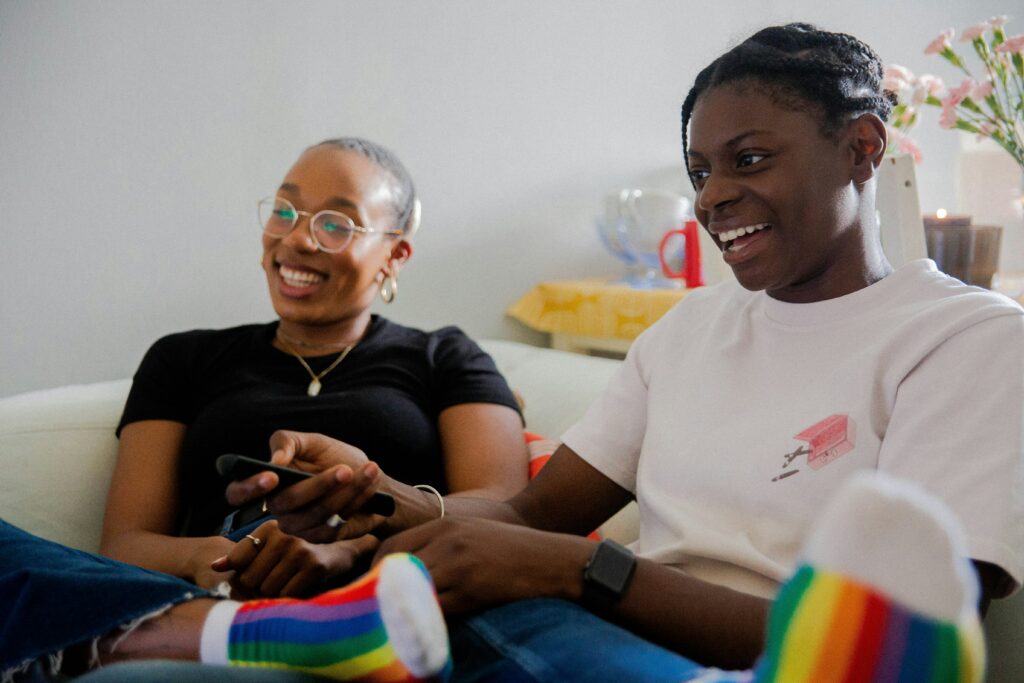
Photo by cottonbro studio
“In my early professional years, I was asking the question: How can I treat, cure, or change this person? Now, I would phrase the question in this way: How can I provide a relationship which this person may use for his own personal growth?” Carl R. Rogers
It’s perfectly OK to start psychotherapy because we just need extra support. We don’t need to have a particular mental health issue or a big reason to reach out for help.
Quite the opposite, the space psychotherapy offers can be a preventive measure, like going to the dentist or the gym, to maintain our emotional well-being.
How does the relationship with a psychotherapist can help us?
My current relationship with my psychotherapist started nearly fifteen years ago. Most importantly, being a psychotherapist myself, taking care of my emotional and spiritual well-being is paramount. It’s a space of reflection that allows me to grow and evolve as a person working in the mental health and caring profession in Burlington, Ontario.
The relationship with a psychotherapist offers a safe space to pause, process life transitions, and identify what is meaningful to us and reflect on our intentions and life purpose. A psychotherapist doesn’t make decisions or choices for us but helps us focus and find some grounding to unfold our inner wisdom and resilience.
Adolescents and young adults undergo a developmental phase characterized by many cognitive, psychological, sexual, identity, and physical changes. Therefore, it’s unsurprising that they want extra support for their emotional, social and behavioural challenges. Family dynamics and relationships with their caregivers, teachers and friends are also vulnerable to disruptions and hurt.
Individual therapy for adolescents and young adults is a helpful approach to creating and maintaining healthy relationships and identifying sources of resilience and change. An adolescent and youth therapist can help to reflect on what matters the most in life and envision a future in which clients feel more content with who they are and what they want to do.
Psychotherapy helps us to gain a sense of agency.
Why is therapy beneficial for our personal development? In most cases, during the psychotherapy sessions, the conversations involve gaining insight, increasing self-awareness, learning new tools, and integrating new perspectives.
We all have patterns of thinking, feeling and behaviour, so when we become aware of these patterns, we learn more about ourselves. We become much more transparent about who we are and how we locate ourselves in relationships with the people in our lives and our surroundings. This process helps us gain a sense of self-agency and can be empowering.
As we learn about our values, emotions and relational patterns, we create the conditions to make more conscious choices.
Grief and loss is a meaningful life transition.
Grief is an intrinsic part of life, not a mental illness or mental health disorder. So many people’s first experience in attending therapy is when they connect with a grief counsellor after the loss of a loved one!
Grief doesn’t dissolve, disappear, shrink or end. Instead, it arises in waves, and it’s a long-lasting experience. When we reach out for grief therapy, we learn that there is no “right” or “wrong.” Through the grief counselling process, the psychotherapist will invite us to notice and learn to trust the unfolding of memories and emotions. Our timeless inner wisdom knows that all waves, whether big or thick or tall, return to the ocean.
Based on many years of experience as a psychotherapist and personal losses, grief is a natural process, and we can learn to trust in the heart’s capacity to renew itself over and over. Like when we go for walks and watch the trees, the creatures living in the forest, and the plants adapting and changing through the different seasons and light.
Psychotherapy can support us in navigating life transitions.
Life transitions are significant changes that may redefine and shift the course of our overall experience and beliefs about who we are, how we do things, and the roles we play in intimate relationships, work and the community.
Change is a constant in life; some we expect to happen, some we hope will happen and don’t, and others are unexpected and unpredictable.
Expected and predictable life changes are related to the natural development that comes with age and cultural expectations, such as moving out from our family of origin’s homes, going to school, starting a relationship, starting a new job, etc. Unpredictable changes can be losing a job, developing a chronic illness, losing a significant other, being forced to move from your place of residence, etc.
What about couples therapy, sex life and relationship diversity?
The quality of our relationships determines the quality of our lives. Esther Perel
When couples and people in romantic relationships take a step to attend therapy, it’s often a sign that they are committed to working on their relationship deliberately. Some people and couples show interest in couples and relationship counselling when intimacy, connection or communication is stuck.
Focusing on complex and challenging relationship problems takes work; couples therapy invites us to address deeper issues affecting our emotional, spiritual, psychological and physical well-being.
Some couples reach out to therapy to explore sexual and relationship diversity. It’s crucial to consider finding a psychotherapist or sex therapist that offers 2SLGBTQIA+ affirmative therapy services. Couples therapy or therapy for ethical non-monogamous relationships is an opportunity to improve the communication and connection of our romantic and sexual intimacy. Sexuality is a journey of exploration and a chance to connect with ourselves and others. Sexuality is constantly evolving and developing, and it’s a meaningful part of our identity.
In couples and relationships therapy, the therapist creates a safe environment where we can work through our relationship challenges. The therapist working with couples remains neutral and non-judgmental and helps clients understand the issues contributing to the difficulties they are experiencing and find ways to move forward.
One crucial role of the therapist is to listen actively, ask specific questions or offer guided exercises to help partners communicate healthier and more honestly, understand each other’s perspectives, and develop new ways of approaching conflicts.


